Login
Enter username and password to log on:
Subscribe now
Fill in the form below to get instant access:
Already have account ? Login here
OR
The Global Wealth and Society programme seeks to identify the important role that the privileged have towards their respective society. In building this programme, we measure wealth, not by the amount of financial assets individuals amass but by the positive impact they create on society through sustainable projects. Projects that are close to their hearts and which they believe to affect their immediate society in a deep and profound manner.
Based on this philosophy of contribution and giving back to the society, we identify these individuals as “Champions of Philanthropy” as part of our Global Wealth and Society Awards Programme.
Over the next few weeks until early October, our research team will be adding new names to the list and will be reaching out to them as part of the awards evaluation process.
The list below profiles selected Champions and their shortlisted projects across Africa, the Americas, Asia, Europe and the Middle East . In doing so, the list also tracks the way they are investing and deploying their wealth to bring about positive impacts on the society that they operate in.
Azim Premji
Founder Azim Premji Foundation - India
Azim Premji Foundation is a not-for-profit organization that has been working since 2000 with the elementary education system in rural government schools. The primary goal of the Foundation is to contribute to a society that is “a just, equitable, humane and sustainable society” as envisaged in the Constitution of India. Towards this goal, we have identified education as a critical area that has a direct impact on the economic, social and cultural development of the nation.
Chuck Feeney
Founder of The Atlantic Philanthropies - Australia
In 1982, Feeney created The Atlantic Philanthropies, and in 1984, secretly transferred his entire 38.75% stake in DFS, then worth about $500 million, to the foundation. Not even his business partners knew that he no longer personally owned any part of DFS. For years, Atlantic gave away money in secret, requiring recipients to not reveal the sources of their donations. "Beyond Mr. Feeney's reticence about blowing his own horn, 'it was also a way to leverage more donations–-some other individual might contribute to get the naming rights.
Prince Al-Waleed bin Talal & Princess Ameerah
Founder of the Al Waleed bin Talal Foundation - Saudi Arabia
Alwaleed Philanthropies supports and initiates projects around the world, regardless of gender, race or religion and collaborates with a range of philanthropic, governmental and educational organizations to combat poverty, empower women and the youth, develop communities, provide disaster relief and create cultural understanding through education. Alwaleed Philanthropies consists of three philanthropic organizations: Alwaleed Philanthropies Global, focusing on philanthropic and humanitarian projects around the world, Alwaleed Philanthropies Lebanon, which is focused on the social and community needs of Lebanon, and Alwaleed Philanthropies Saudi Arabia, which focuses on the needs of the Kingdom of Saudi Arabia.
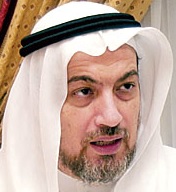
Yassin Abdullah Kadi
Founder Muwafaq Foundation - Jersey
In May 1992, Kadi created the Muwafaq Foundation, an Islamic charity incorporated for the stated purpose of providing famine relief and education in the Islamic world, particularly Pakistan. The charity was incorporated as a trust on the island of Jersey an off-shore tax haven located near the coast of Normandy, France. Kadi personally donated about $15 to $20 million from his fortune and solicited donations from bin Mahfouz and other wealthy Saudi families. Bin Mahfouz became a principal donor but later said that he was not involved in the operation of the charity after its establishment.
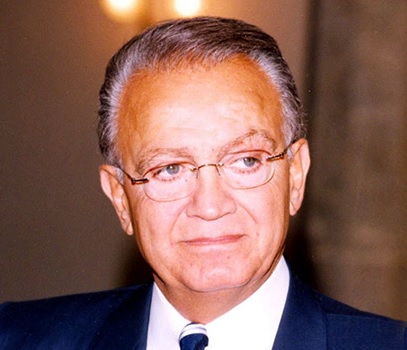
Wafic Said
Co-founder Karim Rida Said Foundation - Saudi Arabia
Since 1982, the Foundation has provided educational opportunities to talented young people and enhanced the capabilities of those working to relieve need and overcome disadvantages in Syria, Jordan, Lebanon, Palestine and the UK. They believe in the power of education to transform lives, communities, and societies for the better and in the value of building bridges across cultures.
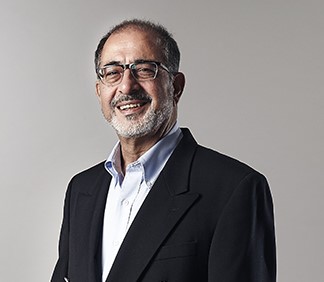
Arvind Narula
Chairman of Urmatt Group - Thailand
Long before the advent and mainstreaming of official impact investing, Narula developed a moral platform and wanted to work with like-minded people to find opportunities no one else was doing for profit. After visiting farmers, he realised they can also benefit using the same platform. With sales growth greater than 20% per annum, Narula self-funded the projects until 2014 before accepting funds from impact investors, to help scale up the business and help even more people. There were around 3,000 farmers who joined the rice project and they earned at least 20% higher than those who were not in the project. Urmatt operates a contract farming scheme that works with the poorest farmers and guarantees them training, education and a better return. Urmatt also provides other kinds of support to communities at no cost, which includes solar lighting to villages with no electricity, water pumps, temple repairs, and equipment. One touching example of Narula’s leadership in the field is the business partnership to produce eggs with the remote hilltop tribes. The idea behind this is to produce organic food in a way that is good for the land and the families by working with rural farmers in underdeveloped areas. The partnership also ensures that the land is farmed in a respectful and sustainable manner while the rural farmers receive their fair share in the sales. By transferring knowledge of organic agriculture and growing the skill sets of the farmers and their families, The Hilltop Tribe project aims to at least double family income and create real and lasting social change and development within the tribes. The project has been audited by the HEC University of Paris, and it received high ratings. The MBA students lived with the farmers for several weeks to fully understand the impact.
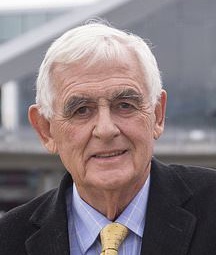
Terry Snow
Executive Chairman, Capital Airport Group - Australia
The Snow Foundation is the creation of brothers Terry Snow and George Snow who established the foundation in 1991 to benefit the disadvantaged community in Canberra and beyond to enable individuals and organisations to introduce positive change.In the 26 years since it was established, The Snow Foundation has reached out to assist 264 different organisations and over 243 individuals, providing $20 million in funding which includes $614,726 to individuals. The annual giving in 2016/17 amounted to $2.1 million, incorporating 30 new grants, 59 ongoing grants and 43 individuals.
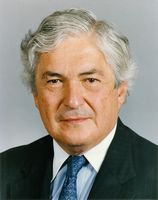
James D Wolfensohn
Former President, World Bank andFounder, Wolfensohn Center for Development - Australia
Six primary research streams of the Wolfensohn Centers work are : the shifting structure of the world economy in the twenty-first century; the challenge of scaling up the impact of development interventions; the effectiveness of development assistance; how to promote economic and social inclusion for Middle Eastern youth; the case for investing in early child development; and the need for global governance reform. In each chapter, a scholar associated with the particular research topic provides an overview of the issue and its broader context, then describes the Centers work on the topic and the subsequent influence and impact of these efforts.
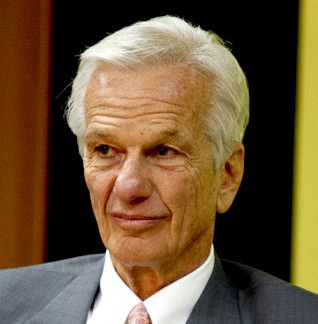
Jorge Paulo Lemann
Co-Founder,3G Capital - Brazil
The Lemann Foundation, a non-profit family organization founded in 2002 by Jorge Paulo Lemann, works to ensure that all Brazilian children have quality public education and to create a network of talented people dedicated to solving social problems in Brazil. To achieve this goal, we develop programs that impact millions of public school students throughout Brazil and support institutions of excellence that work for a fairer and more developed country.
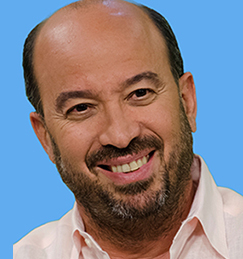
José Roberto Marinho
President, Roberto Marinho Foundation andVice-President, Grupo Globo - Brazil
The Roberto Marinho Foundation works in partnership with businesses, foundations, institutes, non-governmental organizations and governments, in the development and implementation of their actions. It connects people, institutions, networks and ideas, to enable innovative education projects across the country. It's main actions include the implementation of educational projects; development of learning methodologies; teachers training; educational TV programming, distribution and airing; environmental education; professional education; creation and production of museums and exhibits; science and public management awards and cultural events.
please Scan this QR code
from your phone


